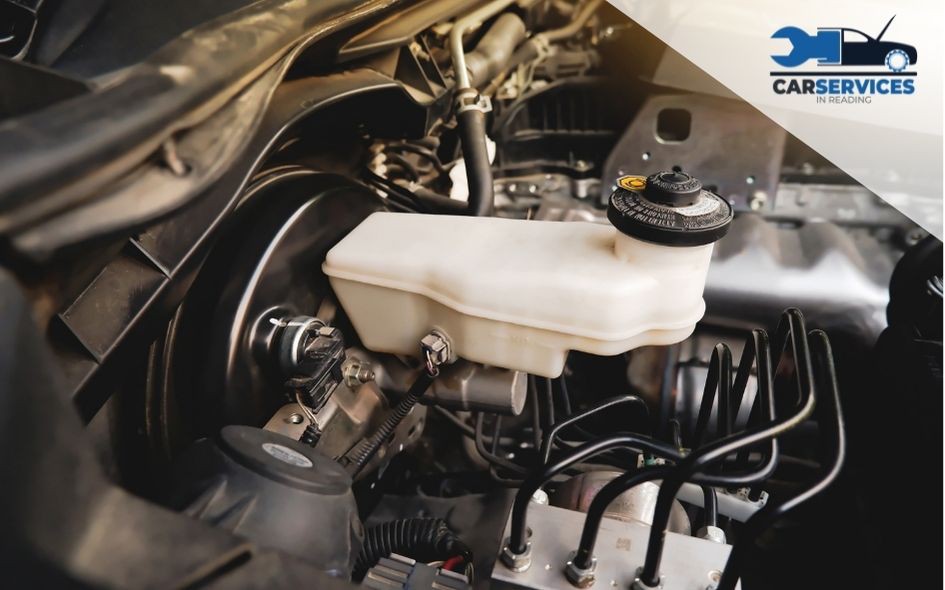
8 Symptoms of a Failing or Malfunctioning Power Brake Booster
A
brake booster's goal is to offer power assistance to the braking system, which
means you don't have to apply a lot of energy to get the brakes to engage. The
brake booster, which is placed between the brake pedal and the master cylinder,
employs a vacuum to overcome the braking system's fluid pressure.
The
car should not be driven if the brakes are not working correctly. Because the
brake booster is such an important element of the braking system, keep a watch
out for the following 8 symptoms so you can have it fixed as soon as possible:
1. Hard brake pedal
An
exceedingly difficult-to-push brake pedal is the major symptom of a faulty
brake booster. This problem may arise gradually or all at once. Furthermore,
after pressing the brake pedal, it will not return to its previous position.
Contact a skilled technician to get your brake booster changed as soon as you
find your brake pedal is difficult to engage. Brake booster defects must be
fixed as soon as possible; driving a car with a faulty brake booster is
dangerous. When you run a MOT
history checker online, this will be plainly indicated as a reason for
MOT test failure.
2. Longer stopping distance
If you have a hard brake pedal, you may find that the car takes longer to stop.
This is due to the fact that you are not receiving the necessary power boost to
effectively stop the car. In all sorts of weather, a greater stopping distance
can be dangerous since it makes your vehicle unreliable. As soon as you
discover this problem, have it checked out by a technician. Another typical
reason for a MOT test failure is related to the braking system when you 'check my MOT
history' online.
3. Engine stalls when brakes are applied
When the brake booster fails, it might pull too much suction from
the engine, causing the engine to stall. This happens when the brake booster's
diaphragm breaks, allowing air to bypass the seal. After that, the brakes are
applied, the engine seems like it's about to stall, and the idle might
decrease. A stalled engine can cause major problems in addition to diminished
braking efficacy. Check your car's MOT status and have a
mechanic rectify the problem, since this will result in a MOT failure.
4. High brake pedal position
The brake pedal can travel less than normal, or it could take much
longer to return to its former position once you take your foot off it. One of
these issues might be caused by an imbalance in the vacuum chambers of a
failing vacuum brake booster.
5. Hissing sound
When you
apply the brakes, you may hear a hissing sound. The vacuum booster may be
leaking through the diaphragm or housing, or the vacuum hose may be leaking.
6. Restricted engine functions
Another possible indicator of a vacuum leak is a compromised engine
function. Let's assume your diaphragm has a hole in it or your vacuum check
valve isn't working properly, allowing air to enter your system. This air may
have an impact on the engine's fuel mixture. Improper fuel mix reduces the
cooling effect of gas, increasing friction and temperature of engine
components. Pre-ignition occurs when the gasoline ignites before the spark plug
fires. Pre-ignition can potentially result in piston damage or a burned valve,
both of which would necessitate costly repairs. When you check MOT history
of your car, a failed emissions test on a MOT could have been due to
this.
7. Warning lights turn on
If your vehicle has an electronic brake booster, the failure of the unit might
cause the anti-lock braking system to malfunction (ABS). Your brake warning
lights, such as the ABS, stability control, or traction control lights, will
begin to glow as a consequence.
8. Fluid Leakage
Fluid
leaks might signal a variety of issues with your vehicle. If your car has
hydraulic boosters and is leaking power steering fluid, your hydro-boost
component is likely to fail as well. Leaks in electronic brake boosters that
are integrated with the master cylinder might also affect their function.
If
you find that the brake pedal is difficult to press or that your car is taking
longer to stop, have it inspected by a professional to ensure your safety on
the road. If necessary, the mechanic will repair your brake booster as soon as
possible so that you may drive your car safely again.